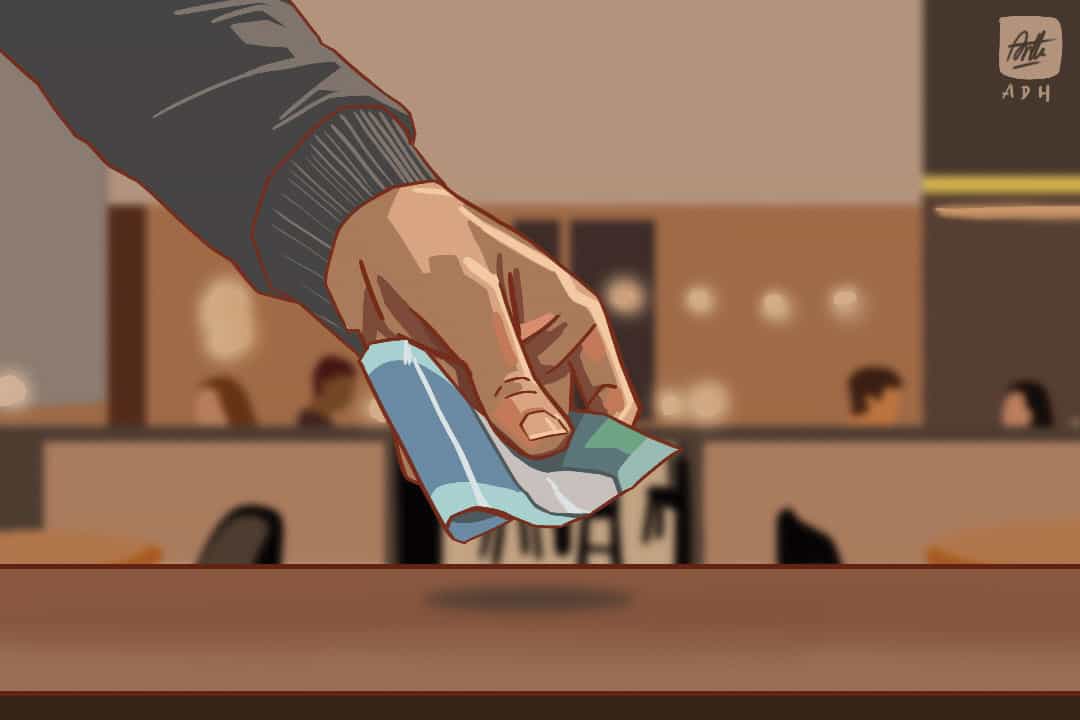Tipping culture in Canada is a hot topic with controversial opinions. While some believe tipping should be a norm, others don’t think they should be forced to tip.
According to a recent report by the Angus Reid Institute, “tip-flation” has three in five Canadians feeling obliged to tip more money, more often.
According to an article by Narcity, tipping culture in Canada has been a trending topic on TikTok. The article mentions tiktoker Morten Rand-Hendriksen, also known by his TikTok handle @mor10web, who went viral for his take on the topic. Morten explained that the expectation for tipping in food and delivery services ranges between 18 per cent to 20 per cent on their receipts as employees rely on tips to earn a livable income.
With that said, some people believe that if you can’t afford to tip, then you shouldn’t be going out altogether. They believe that it is basic etiquette to tip someone for the service they provide you. Personally, I see both sides. However, in light of these reports, it is clear that the tipping culture has gotten out of hand.
I believe the cycle of tipping culture reveals a deeper flaw that can’t be resolved by tipping more money, more frequently.
A culture shock
As an international student, the Canadian tipping culture was a huge culture shock, as it was not the norm where I grew up. I grew up in the United Arab Emirates where tipping is not a required task but a genuine gesture to show gratitude for services. There is no mandatory amount either, you usually tip whatever you feel like. Sometimes, you don’t even have to tip.
The motto that I grew up with was that if you were a student or someone who was unable to tip, then you didn’t have to. If you were someone with a stable source of income and could afford to tip, then tipping is seen as a nice, genuine gesture. From my experience, the restaurant owners are the ones who are tasked with paying employees more, not the customers. When I moved to Toronto, I realized quickly that not tipping is not an option. There have even been occasions where my friends who also grew up in the Middle East have been told off for the amount that they have tipped.
To increase wages or to increase tips
The system for tips is messy and undefined. There is no guarantee that employees reap the full benefits of the tips they receive. Instead, tips are sometimes piled up into a pool and are split evenly amongst all employees.
In an article by CBC, Danielle Nerman reported that sometimes business owners are also included in these pools, despite that being illegal in Ontario. In other scenarios, employees may never even get a chance to benefit from these tips, as there have been cases of employers keeping them to themselves.
Morten Rand-Hendriksen explains that business owners don’t pay their workers a livable wage because then they will be forced to increase their prices. The increase in price will drive customers away.
With that said, some restaurant owners do agree that the tipping culture has become too aggressive and that all staff members shouldn’t rely on tips to survive. Bampot Bohemian House of Tea and Board Games is one of the few places in Toronto that has a no-tipping policy. Other restaurants following a similar model include Then and Now, Richmond Station, and Dispatch Restaurant.
Owners of restaurants like these have opted to increase their prices or include a hospitality fee so that they can afford to give their employees fairer wages. According to an article by Narcity, the owner of Bampot Bohemian House of Tea and Board Games, Alex, revealed that his team earns $25 an hour, which is almost $10 more than minimum wage. Furthermore, Alex believes that tips shouldn’t be used “as a way to subsidize wages” and that customers should tip only if they want to.
Tipping culture in Canada is a broken system. I think the best way to move forward is to tip if it’s affordable to you. As Tristan Wheeler explains, not tipping makes it easier for customer service workers to be exploited. While tipping is not the solution, it is the current system we live in and if you can afford to, you should tip.


